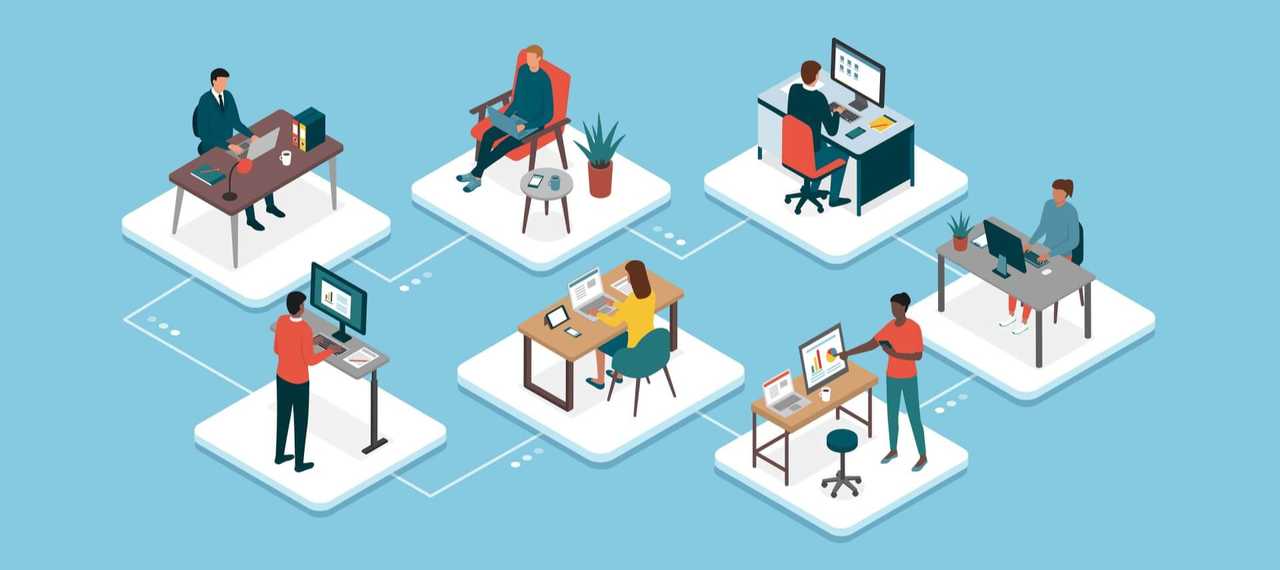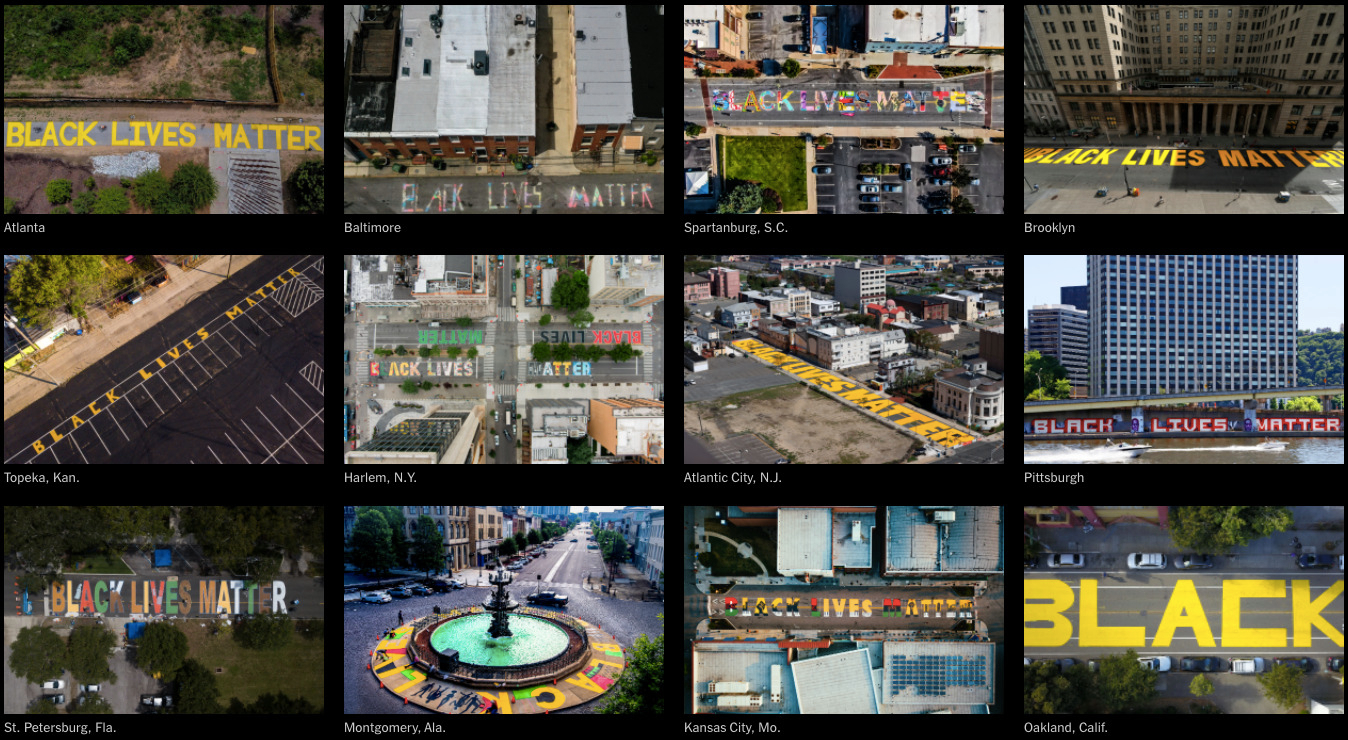What does the future of work look like?

More than two years after the pandemic first locked down offices, some large companies are starting to close the door on blanket remote-work accommodations.
🏢 A deeper dive… Apple, Google, and Microsoft have all sent out notices in recent months requiring corporate employees to return to at least three days of in-person work by this summer, while other companies like Tesla and Goldman Sachs are mandating the traditional five days/week (or 40 hours).
- A third bucket of companies, including Twitter, Reddit, 3M, Lyft and Spotify, have committed to policies allowing employees to work from home permanently, or come into the office as often as they’d like.
📊 What does the data say?... The research on the subject is mixed.
A 2015 case study of a Chinese travel agency saw productivity increase by 13% among those who worked at home, and a separate US call center study found employees who went remote boosted their calls per hour by 7.5%.
- But that increased productivity also coincided with a rate of promotion that was roughly halved relative to employees who worked in person; in the US study, 23% of on-site workers were promoted, compared to just 10% of those working remotely.
- A recent peer-reviewed study examining the communication practices of 60,000+ Microsoft employees before and after the pandemic also found remote work may boost productivity, but it likely decreases collaboration and creativity.
See the 360° view →

Sprinkles in favor of in-person work
- Some commentators in favor of in-person work cite studies that show employees’ stress levels are elevated when they’re unable to spend facetime with colleagues, and their loneliness also increases.
- Others contend that in-person work is especially important for new high school or college grads to acquire the interpersonal skills that are essential to progressing their careers.
“As the pandemic drags on, many white-collar workers are realizing that those seemingly banal water-cooler chats in the office during pre-pandemic times were surprisingly important to their mental health. Sure, it ate up valuable time chatting about the latest Netflix series and commiserating about commuting, but it was also a glue that helped us connect with co-workers. The lack of office socializing and collaboration is contributing to the weakening of our work relationships and increasing employee stress…
Spending time with people at work also tends to decrease loneliness. People who spent five or more hours with co-workers in the past week were 1.7 times less likely to be lonely, according to a joint study from the GenWell Project and the University of Victoria that analyzed loneliness during the pandemic…
For some, working remotely is ideal and something they don’t want to give up. For others, it’s been a major challenge and has increased their sense of isolation. In this paradigm-shifting moment in work force history, the question becomes: Where is the middle ground? Whatever the answer, it’s clear that addressing the issue must be a priority.”
“I don’t have to run through the benefits of remote work for anyone. But there are dangers, too. And those dangers are apt to be most dangerous for young people, who need to be building up their human capital right now: acquiring skills, learning about their industries, making professional contacts who can help them find their next job, or the job after that. All of that stuff is harder to do over email or Zoom…
Over time, those deficits accumulate. You haven’t made friends or built up a reservoir of goodwill with managers and peers that will carry you through rough patches (I regret to inform new graduates that there will inevitably be rough patches). You didn’t hear the gossip about competitors that might alert you to opportunities — or warn you off similar mistakes. You haven’t listened to the war stories that teach you how to handle tricky situations, or get roped into an interesting project because you were chatting to the right person at the coffee maker. When you depart, you aren’t a fond memory, but just one less box on the Zoom screen…
It’s much easier to fire a box on the screen than the nice kid you ate lunch with last week. And as an entrepreneur of my acquaintance likes to point out, if your job can be done from the beach, it can probably also be done from Bangladesh, by someone who makes a lot less money than you do. So working in the kind of job, or company, that supports fully remote work probably makes you more vulnerable to layoffs over the long term.”

Sprinkles in favor of remote work
- Some commentators in favor of remote work argue that autonomy is the key to happier and more productive employees, and the key to autonomy in a post-pandemic world is giving workers the flexibility to stay at home.
- Others contend that companies who wish to attract high-quality employees in the current tight labor market need to offer better workplace amenities, including the ability to WFH.
“Elon Musk recently demanded that all Tesla staff return to the office full-time or “pretend to work somewhere else”...
One of Musk’s false assumptions is that employees “pretend” to work from home. Research using both surveys and behavior tracking shows that remote work results in higher productivity…
Yet despite this easily available evidence, Musk wrote in another leaked email that those who work remotely are “phoning it in” — and highlighted the importance of being visible. His focus on visibility in the office speaks to a highly traditionalist leadership mindset underpinned by the illusion of control. This cognitive bias describes our mind’s tendency to overestimate the extent to which we control external events.
It’s especially prevalent in authoritarian executives who want to control their employees. They believe that having employees present in the office guarantees productivity.
In reality, research shows that in-office employees work much less than the full eight-hour day. They actually spend anywhere from 36% to 39% of their time working. The rest is spent on other activities, from checking social media to looking for other jobs…
Musk’s desire for control goes directly against what we know is critical for productivity, engagement and happiness for information workers: the desire for autonomy… Key to autonomy in the post-pandemic environment involves giving workers flexibility of where and when they work…
Musk’s illusion of control and false assumptions will result in serious losses to Tesla and a gain for companies that are innovating about the future of work.”
“To attract workers in today's tight labor market, companies are touting better workplace amenities… This is a workers' paradise in the making.
That said, not all companies are offering better pay or benefits. And many managers are so fixated on hiring that they neglect the people still with them. That can prompt their current employees to start noticing those greener pastures elsewhere, too.
That's one reason March quit rates hit an all-time high of 4.5 million… Even those satisfied with their careers to date said they would leave for higher pay and better work-from-home options…
The pandemic forced many people into remote work, whether they liked it or not. Large numbers found they liked a lot about it.
Now, increasing numbers of people demand the ability to choose when, where and how to work… Workers clearly felt empowered by having more control over their own work life. Companies must give people choices that match their unique work and life needs.”
Share this!
Recent Discussion stories

Discussion
| June 1, 2022SCOTUS Suspends Texas Social Media Law
⚖️ The Supreme Court on Tuesday blocked Texas from immediately enforcing a new social media censorship law in a 5-4 ruling that crossed ideological lines.

Discussion
| May 27, 2022Gun Violence in America
🇺🇸 The leading cause of death among American children is now guns, according to new CDC data published last week, days before the school shooting in Uvalde, TX, that claimed the lives of 19 children and two teachers.

Discussion
| May 25, 2022George Floyd’s Murder: Two Years Later
🇺🇸 An estimated ~20 million Americans joined protests against police brutality in the weeks and months after Floyd’s death, marking one of the largest demonstrations in US history. What’s happened since then?
You've made it this far...
Let's make our relationship official, no 💍 or elaborate proposal required. Learn and stay entertained, for free.👇
All of our news is 100% free and you can unsubscribe anytime; the quiz takes ~10 seconds to complete